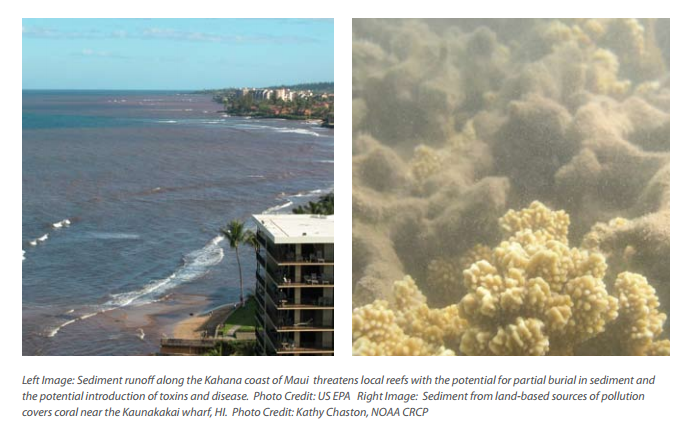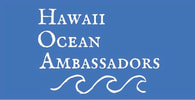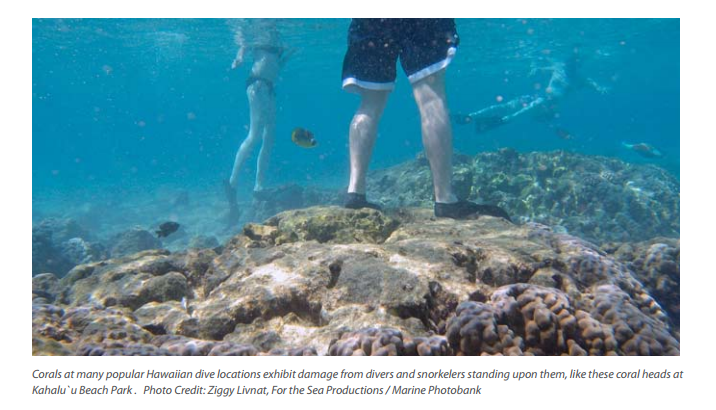
In 2010, the National Oceanic and Atmospheric Administration (NOAA) published a report entitled, 'Hawaiian Archipelago's Coral Reef Management Priorities' detailing the government agency's 10 year strategic coral reef management priorities. The report's purpose was to determine how to best direct its investment in activities in each jurisdiction through grants, cooperative agreements, and internal funding. It is a fascinating report and worth a read. For those with limited time however, a few key facts are provided below: - According to NOAA, greater than 60% of coral reefs in U.S. waters are found in the Hawaiian Archipelago. - The eight main Hawaiian Islands support over 140,000 acres of coral reef habitat. - Hawai'i has estimated rates of endemism of 25% or greater for most coral, fish, and invertebrate species. This unique marine life is found nowhere else in the world - It is estimated that the state's coral reefs generate approximately $800M annually to the state's economy from marine tourism -'While Hawaii’s reefs are still in fair to good condition, many urban areas and popular destinations have suffered from landbased sources of pollution, fishing pressure, recreational overuse and invasive species'... Let's take a look at a few of these causes of damage as paraphrased from the report: Pollution Problem: Land-based sources of pollutants, such as sediment, nutrients and other pollutants, represent one of several factors threatening the quality of coral reef ecosystems. Sources include: sediment washed away by mono-crop farms, pesticides, petroleum hydrocarbons, pharmaceuticals, heavy metals, pathogens, and excess nutrients. These pollutants are washed into the ocean during heavy rains and damage the reef in a number of ways including promoting algae growth that competes with corals for space on benthic reef surfaces and can affect the success of coral settlement. What you can do: 1. Drive less and as a result use less petroleum and reduce the level of hydrocarbons you are responsible for emitting into the atmosphere. Bike, walk, run, or even swim wherever you need to go, whenever possible! Also, worth considering is purchasing a more gas efficient vehicle, hyrbrid, or electric; or switch over to a moped, scooter, or motorcycle for when you must drive. Its Hawaii after all, take it slow and cruise a bike! 2. NEVER USE PESTICIDES - especially in residential or home use. No need whatsoever! 3. Never improperly dispose of oil. RECREATIONAL OVERUSE
Problem:
"Hawaii’s Local Action Strategy to Address Recreational Impacts to Reefs (2005) identifies the ways in which marine recreational activities, such as snorkeling, diving and boating, may affect coral reefs. Specifically: Breakage of coral skeletons and tissue from direct contact such as walking, touching or gear contact; Breakage of coral skeletons and tissue from boat anchors; Alteration in the behavior of marine life from feeding or harassment; Potential introduction of pollution from discharged grey water or sunscreen or transfer of aquatic invasive species (AIS). " What you can do: 1. Never touch, step on, or otherwise disturb coral reefs - even areas that look dead already to you is an area which in all likelihood is still a functioning and critical part of the reef ecosystem 2. Educate friends and visitors as to the dangers of stepping on or damaging reefs and encourage them to use best practices to avoid stirring up sediment with fins and keeping back from marine life 3. Write or comment to hotel staff where you think improved signage could mitigate unknowing damage by uneducated visitors. *We at HOA will be going around to various popular snorkeling destinations on the island, collecting pictures of signage regarding not damaging coral (or the lack there of) and writing to those businesses adjacent or profiting from the use of a specific reef to request updated signage or other efforts to better educate their guests, clients, and visitors. Protect the reefs - Mahalo!!!
1 Comment
2/24/2023 04:26:41 am
I wanted to express my gratitude for your insightful and engaging article. Your writing is clear and easy to follow, and I appreciated the way you presented your ideas in a thoughtful and organized manner. Your analysis was both thought-provoking and well-researched, and I enjoyed the real-life examples you used to illustrate your points. Your article has provided me with a fresh perspective on the subject matter and has inspired me to think more deeply about this topic.
Reply
Leave a Reply. |
Archives
April 2020
Categories
All
|



 RSS Feed
RSS Feed
